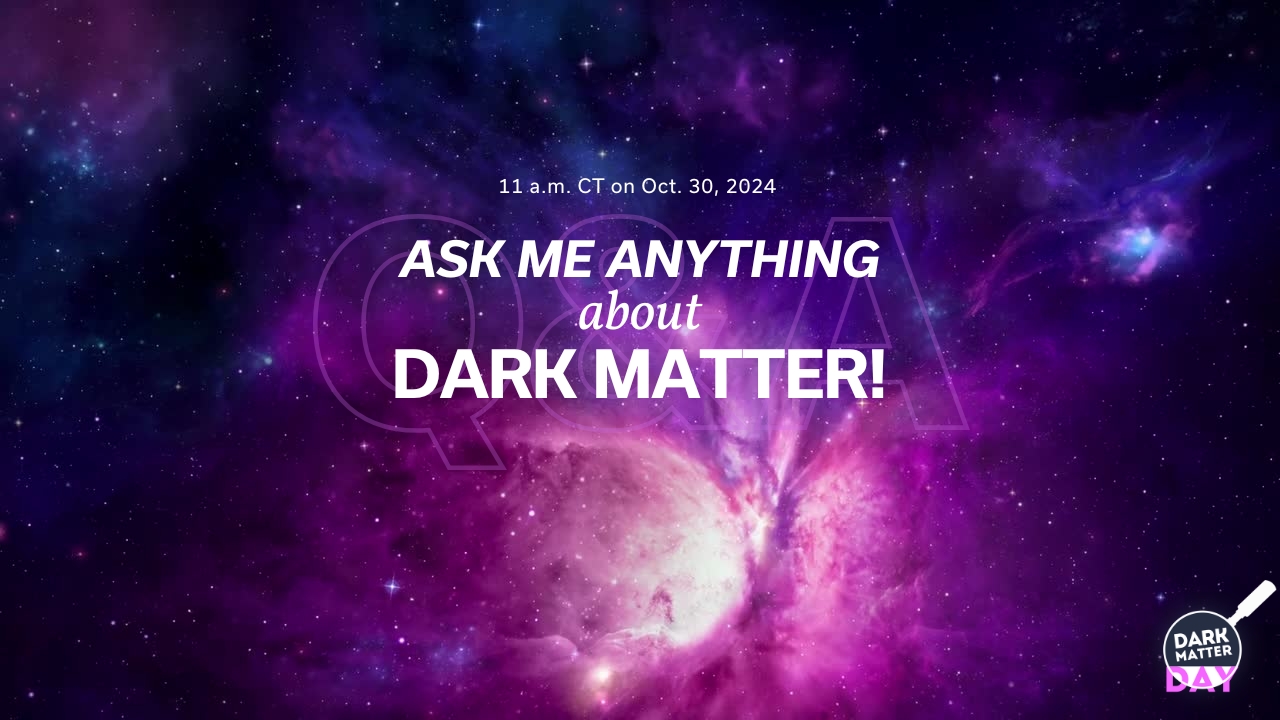The U.S. Department of Energy’s Fermi National Accelerator Laboratory is going live on Wednesday, Oct. 30, to discuss everything about dark matter! Join Fermilab physicists at 11 a.m. Central Time through YouTube for a special Dark Matter Day event, when they will answer participants’ questions. Set a reminder for the event here.
Ordinary matter — like planets, stars and galaxies — makes up just 15% of the total matter in the universe; the other 85% is dark matter. While observing galaxies and galaxy clusters, researchers realized that the motion of stars within galaxies couldn’t be explained solely by the amount of visible matter. Some other, invisible mass was exerting a gravitational pull.

Fermilab’s live Q&A on Oct. 30 with dark matter scientists will cover all you wanted to know about this cosmic mystery.
Decades later, dark matter is still largely a mystery. Strong evidence points to dark matter being a new type of particle or particles. Scientists are searching for several dark matter candidates, including weakly interacting massive particles, called WIMPs, and axions. It’s possible that more than one unknown particle is responsible for dark matter and that an entire dark sector of new particles exists.
In the early 1980s, Fermilab scientists were some of the first to bring together the worlds of astrophysics and particle physics into the new field of particle astrophysics. Today, Fermilab plays a key role in several experiments searching for dark matter.
Along with the discussion on YouTube, Fermilab is also hosting an in-person event for Dark Matter Day.
The Education and Public Engagement Office is hosting a Dark Matter Day trivia event at Smarty Pants Café, 817 N. Randall Rd., in Batavia, starting at 6 p.m. CT on Oct. 28. Participantswill be able to play three rounds of Fermilab and dark matter-themed trivia.
Since 2017, more than 350 global, regional and local events have been held on and around Oct. 31 to celebrate the cosmic mystery that is dark matter. For more Dark Matter Day events visit Interaction.org.
Fermi National Accelerator Laboratory is supported by the Office of Science of the U.S. Department of Energy. The Office of Science is the single largest supporter of basic research in the physical sciences in the United States and is working to address some of the most pressing challenges of our time. For more information, please visit science.energy.gov.



